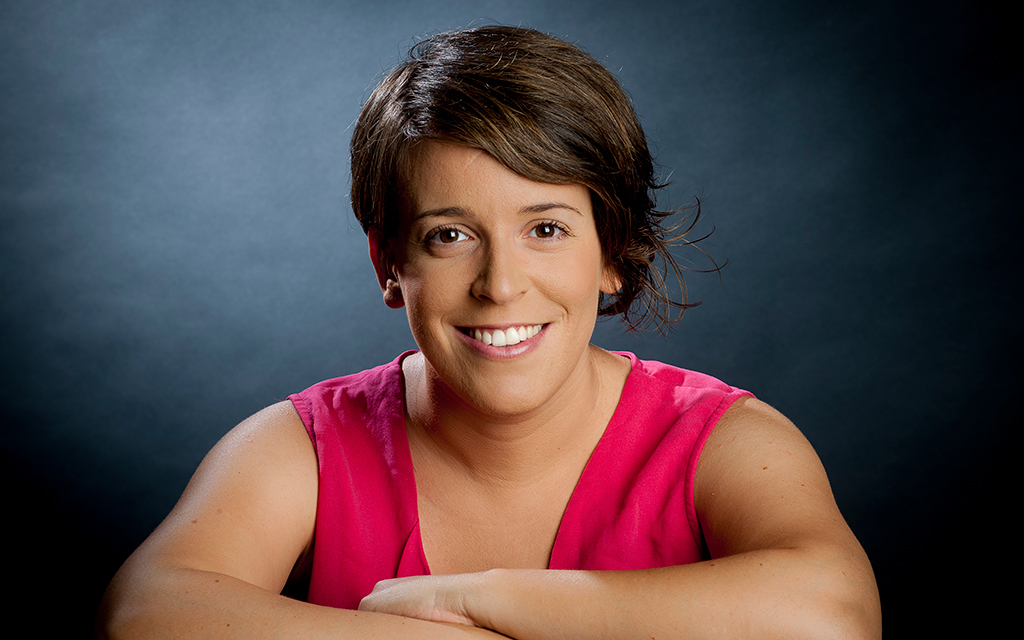Mar Cabra , Pulitzer Prize-winning data journalist
A champion of data journalism in Spain, Mar Cabra (1983) formed part of the Panama Papers investigation that won the Pulitzer Prize in 2017. She has worked for national and international newspapers and television channels and until last year was the head of the Data & Research Unit at the International Consortium of Investigative Journalists (ICIJ). Among other posts, she has also directed the Fundación Ciudadana Civio.
A champion of data journalism in Spain, Mar Cabra (1983) formed part of the Panama Papers investigation that won the Pulitzer Prize in 2017. She has worked for national and international newspapers and television channels and until last year was the head of the Data & Research Unit at the International Consortium of Investigative Journalists (ICIJ). Among other posts, she has also directed the Fundación Ciudadana Civio.
In Spain, data journalism is currently enjoying a certain degree of popularity, but when you started out there was almost no one. How did you begin?
When I was younger, I didn't know I wanted to be a journalist and less so a data journalist. I worked in television and I didn't like how quickly things were done. I went to the United States and specialized in investigative journalism. When I got there I thought they would teach me about information leaks and people would hand me documents. But they taught me that there is a lot of information on the internet, which already exists or can be requested thanks to the Transparency Act. In Spain, in 2009, there was no such law and I had never heard about using data to tell stories, but when I started including it in my reports I found it fascinating. I was able to show through data what people told me verbally and thought it was fantastic to be able to write so convincingly in this way.
Data journalism is even more masculinized than traditional journalism. Have you found things more difficult as a woman?
I haven't experienced major problems. I was lucky enough to receive an education that taught me I could even be president of the government if I wanted to. I haven't felt it myself, but I have become increasingly aware of the lack of diversity in all respects, not only gender, in the world of technology and journalism. I've become aware of it through problems experienced by my female colleagues. It's also important to recognize the difficulty in the recruitment process, which requires an active change in mentality and the inclusion of all kinds of diversity. Science shows that there is a gender bias when recruiting and a need for active inclusion in the selection process.
Have you experienced or do you fear the glass ceiling that women often come up against when progressing professionally?
I've been lucky because I've been a boss and worked in the United States, where in certain areas they're more advanced. The first ceiling affects all youths. It's hard to be a young boss in the world of journalism in Spain, regardless of your qualifications. Here they tell me I've gone a long way for a 34-year-old while in the United States they tell me it's no big deal. I don't have this concern because I don't want to be a newspaper editor. If I did, it seems like it would be difficult. The whole of the media in Spain needs to reflect on this, as there are often few women in editorial meetings.
Is data journalism known about in Spain? Do readers know what's involved?
When I came back to Spain from the United States in 2011 no one was doing it. We began giving lectures and talks explaining how Excel was useful for journalists. Five years later, there were data teams in almost all media outlets and it's the same today. If you compare it with the United States, there's still a lot to do. We shouldn't see data journalism as something only done by specialized journalists; all journalists should know how to work with data. It's a challenge for editorial boards to increasingly use more spreadsheets to tell stories. The authorities have to release more information.
Will data journalism force governments to be more transparent?
Spain is not very transparent culturally. The fact that more journalists are trying to access data and use spreadsheets is helping. It would also help if citizens requested data, as some NGOs are already doing. It's a very gradual process. We come from a dictatorship and have a culture of not giving, which asks: "why should I give it to you and what do you want it for?" Until recently, Spanish legislation only allowed information to be provided if you could demonstrate a legitimate and direct interest. The Spanish Law on Transparency was passed in 2013 and did not fully take effect until 2015. We have little experience, whereas in Sweden they've had transparency laws since the 18th century.
You won the Pulitzer Prize for the Panama Papers. What did this prize and the leak of documents mean for you?
It was very important to receive this recognition for this new way of doing journalism, with the collaboration of hundreds of journalists. It helped us to say that this kind of journalism exists and is increasingly the norm. There were 40 years of documents of a Panama-based law firm operating in 40 countries and 11.5 million documents. Thanks to this, eight months after publication, there were 150 investigations in almost 80 countries. At least 500 million dollars in unpaid taxes have been recovered and investigations have been opened in different countries. High-ranking politicians have resigned, such as the former Spanish minister Soria and the Prime Minister of Iceland. The biggest shift concerns the legislative changes and the support for working on certain legislative issues at European level to go on closing these loopholes.
Press contact
-
Editorial department

